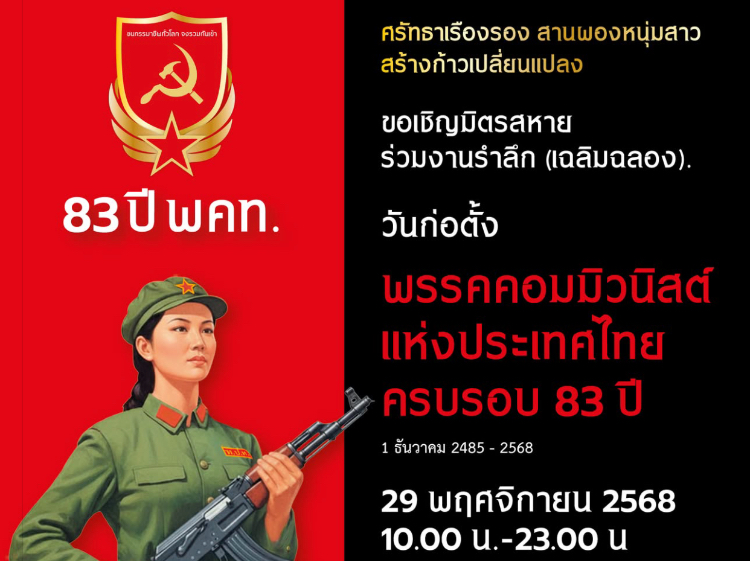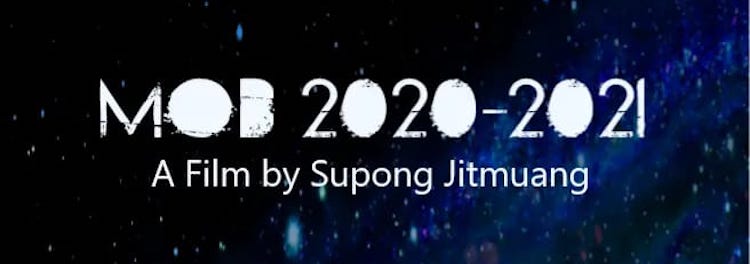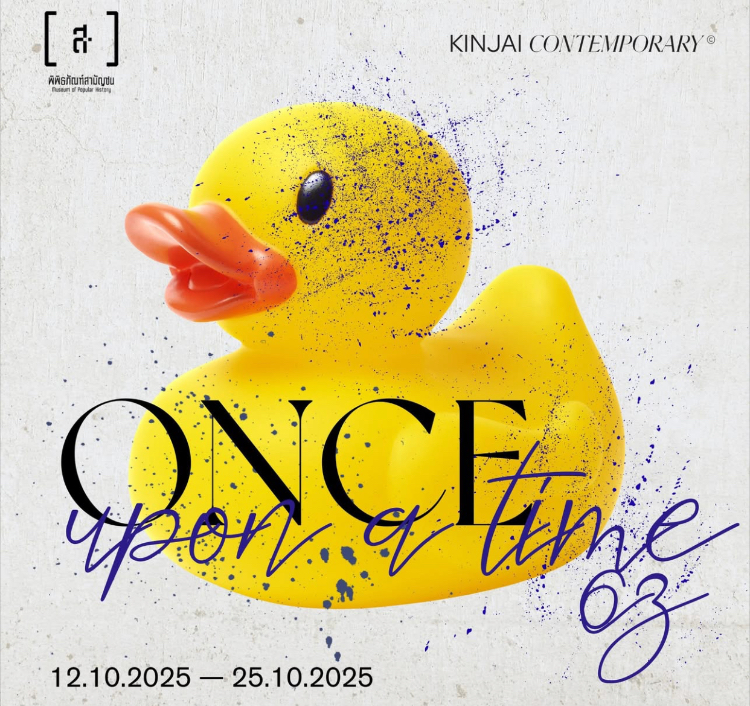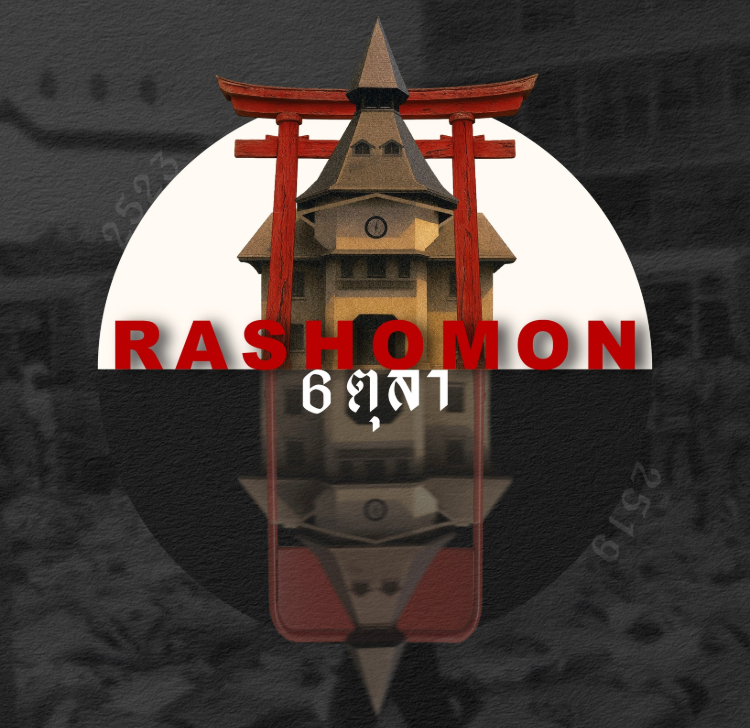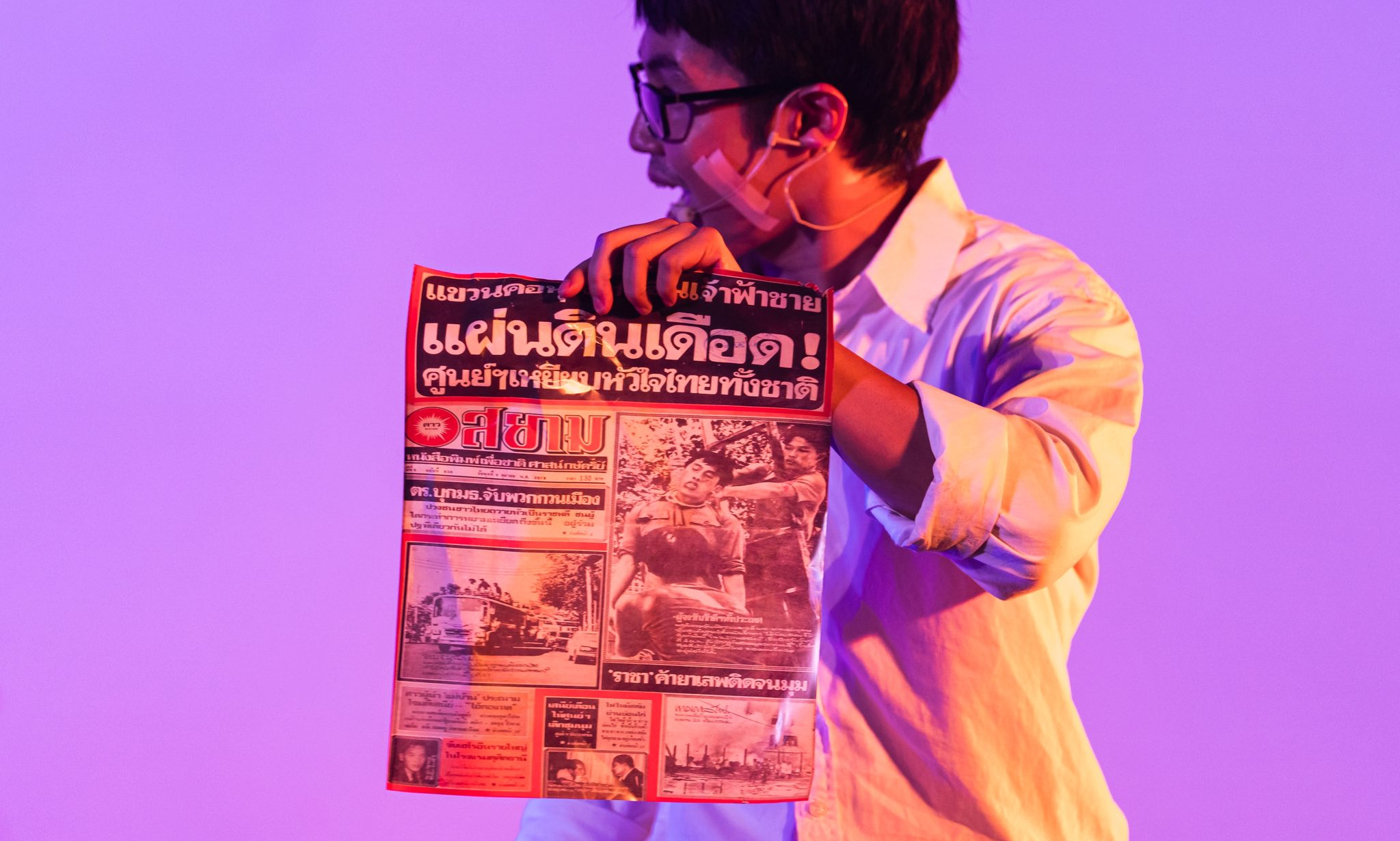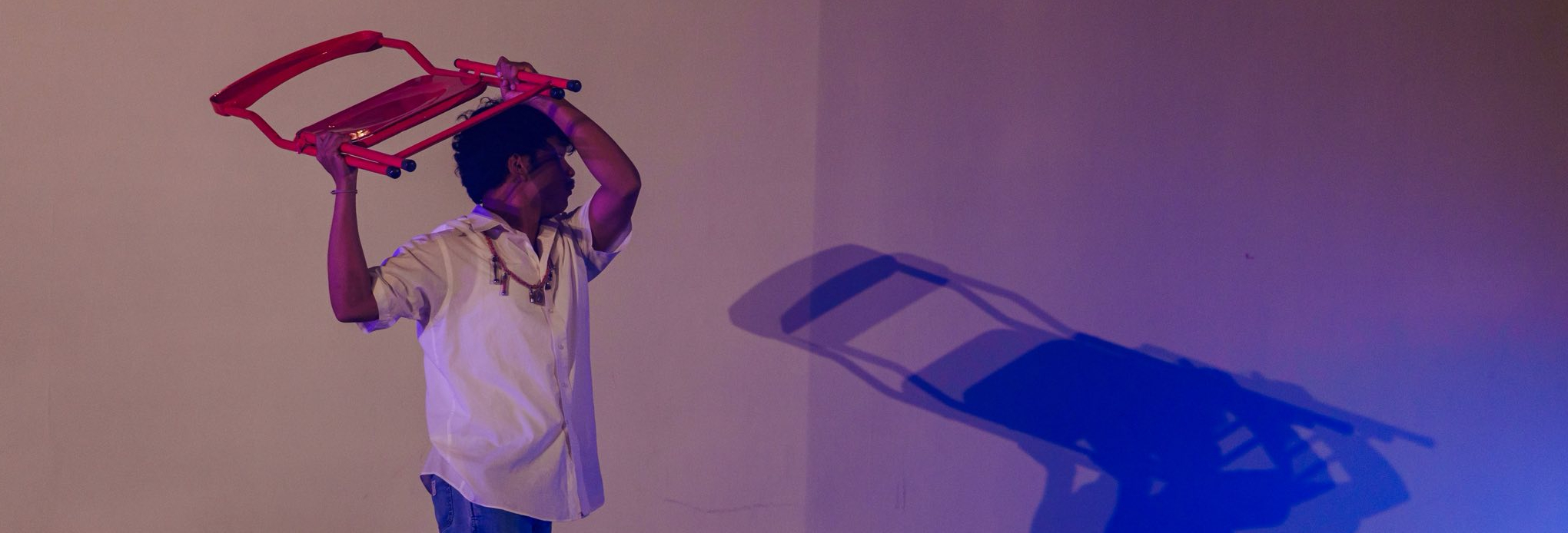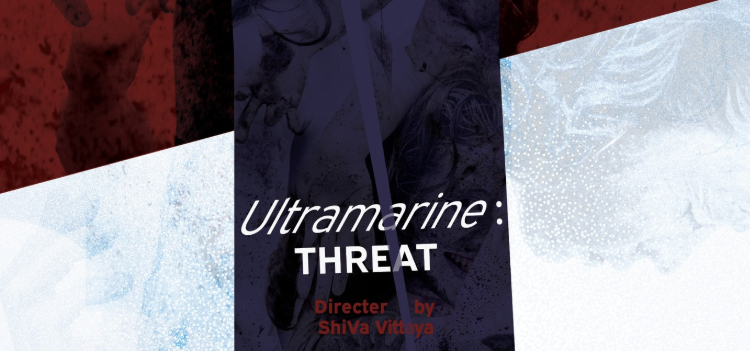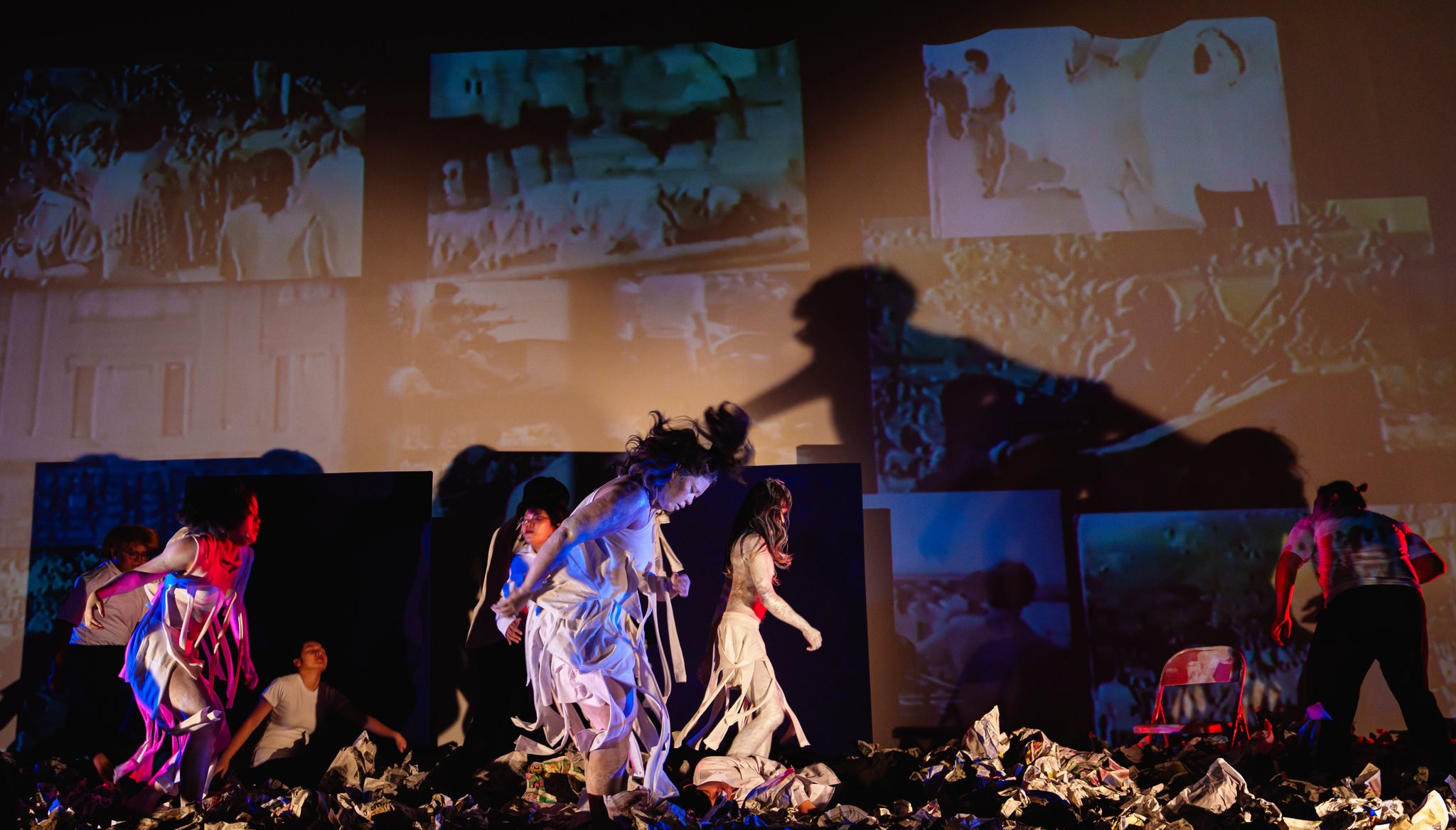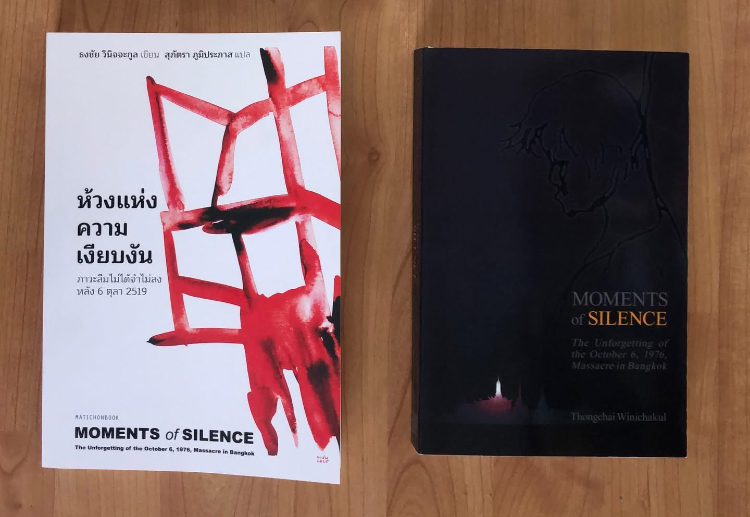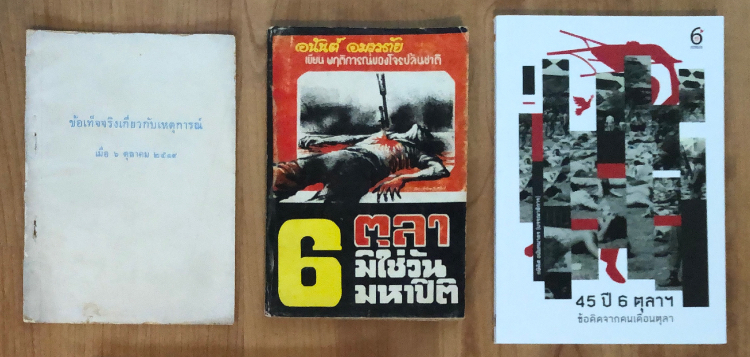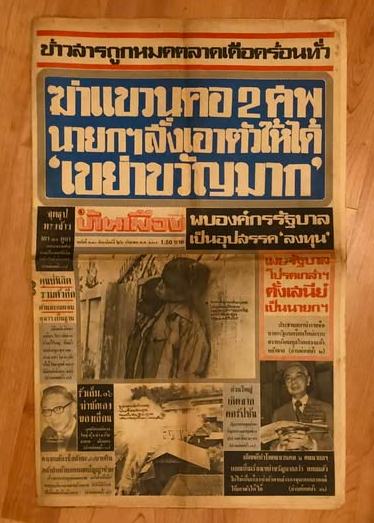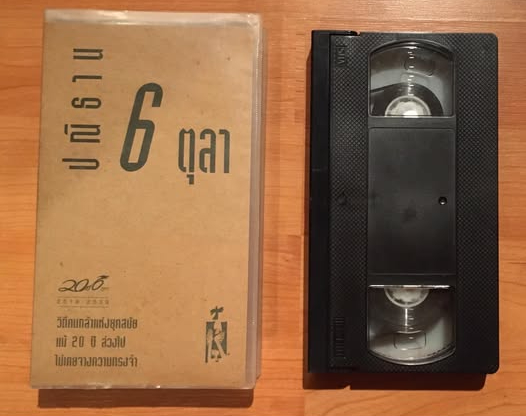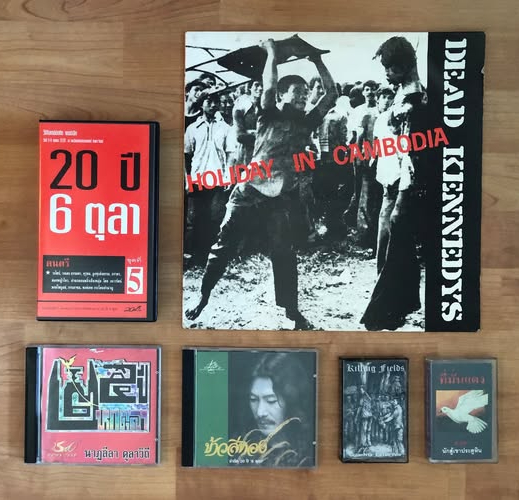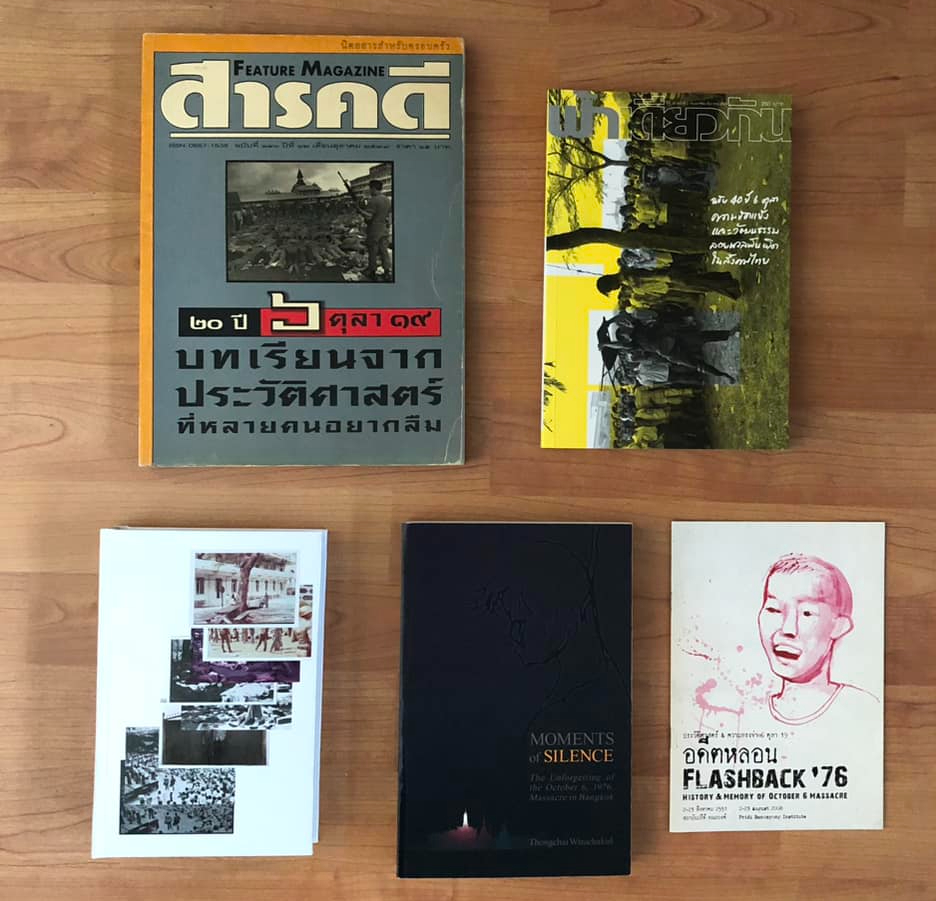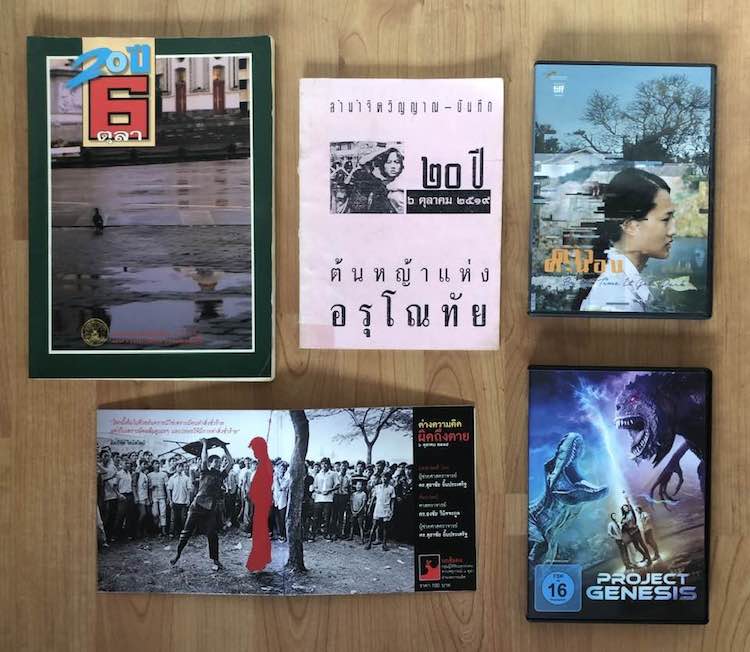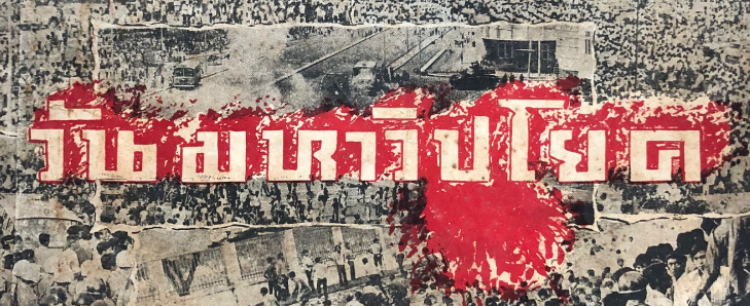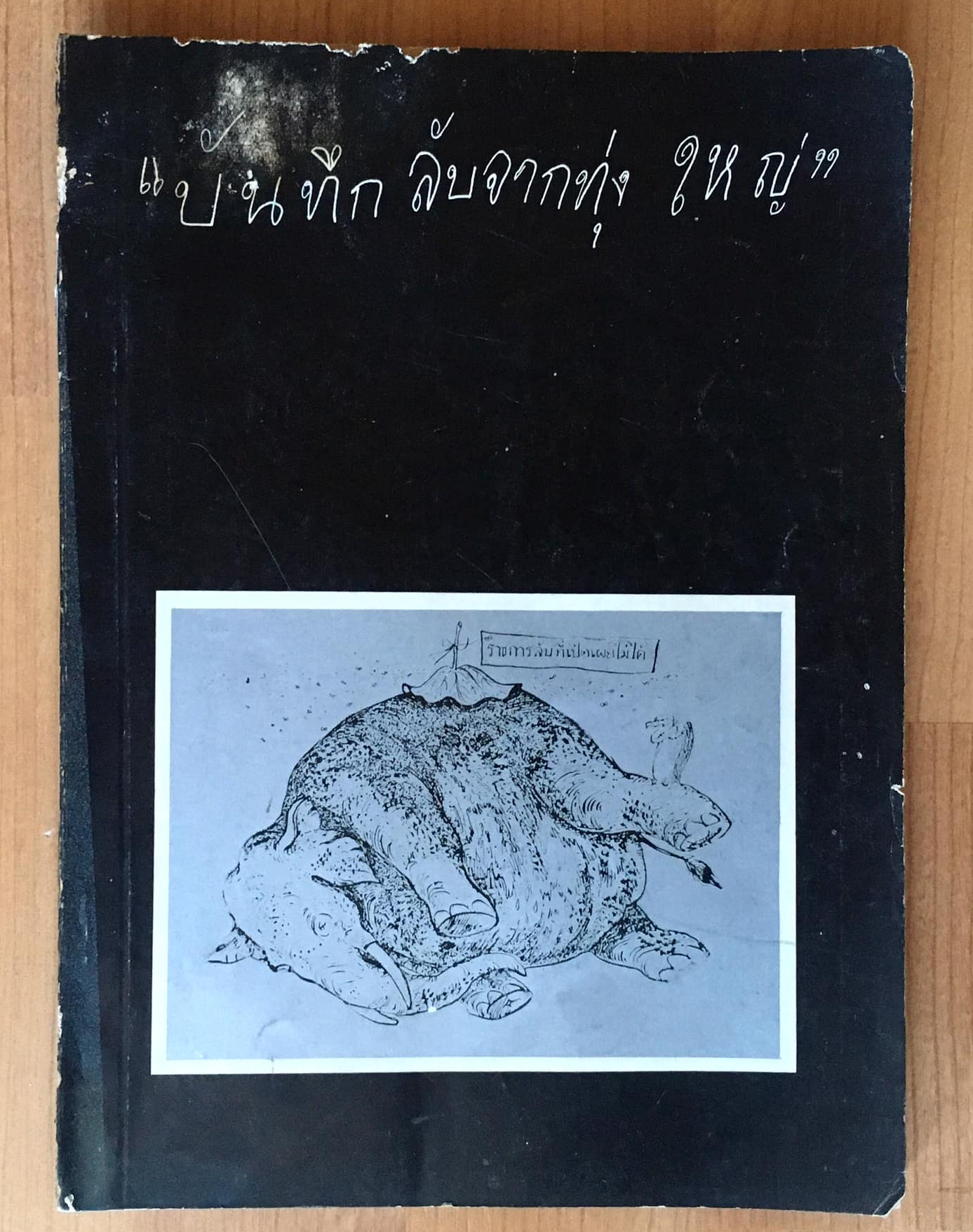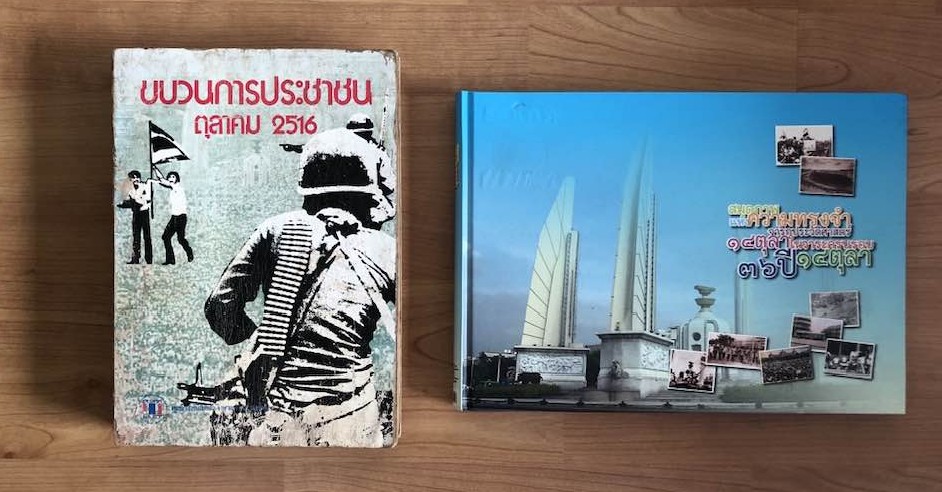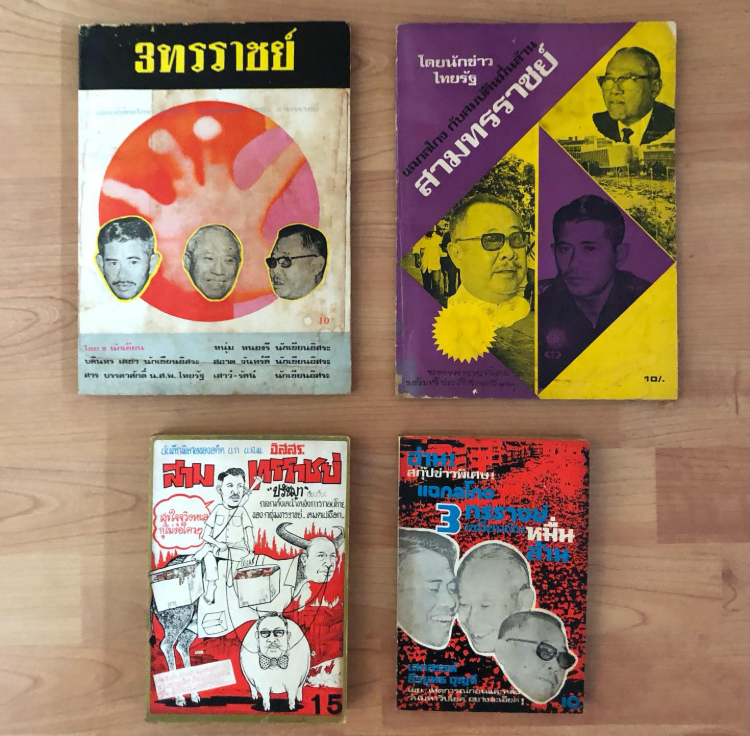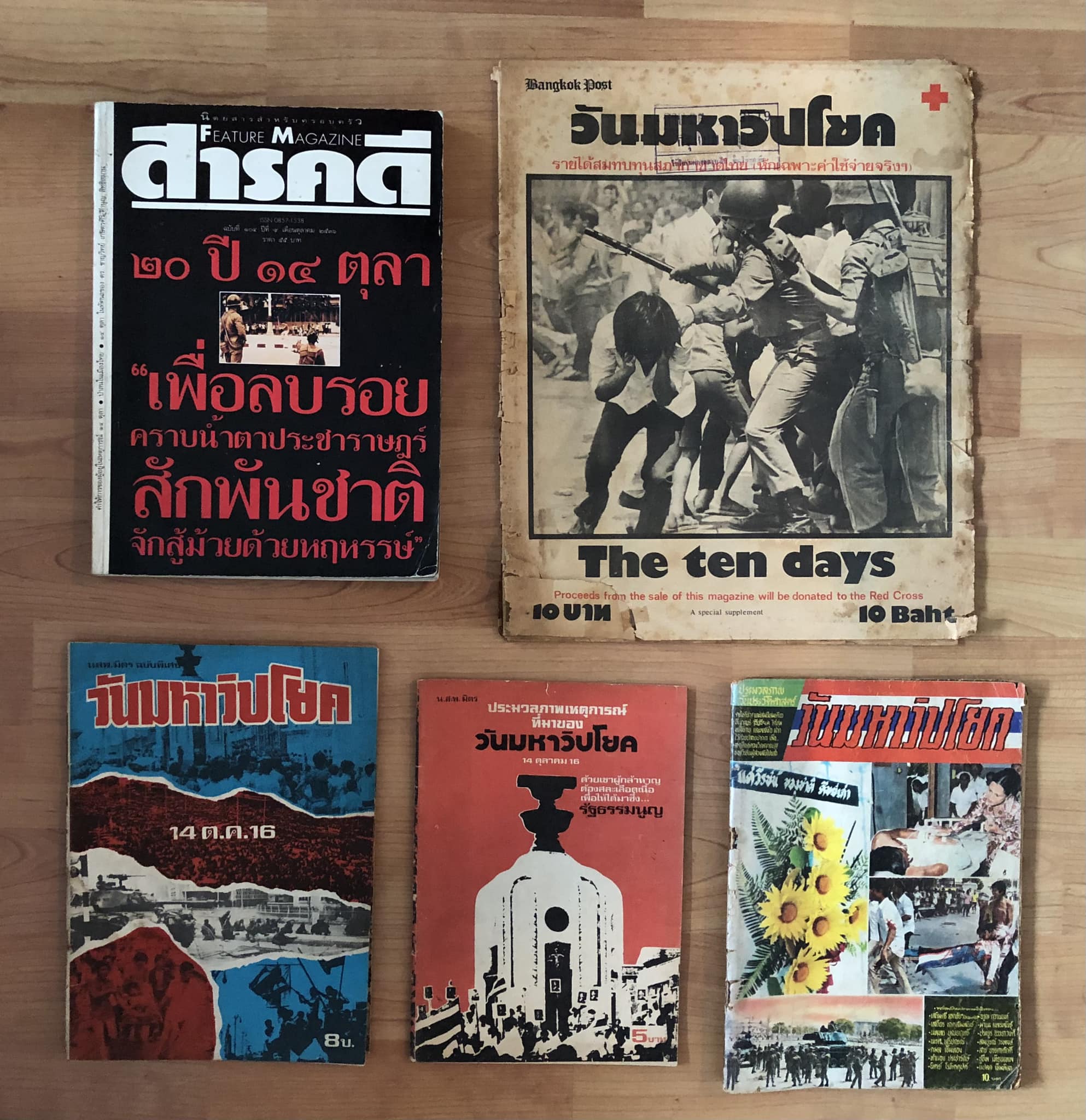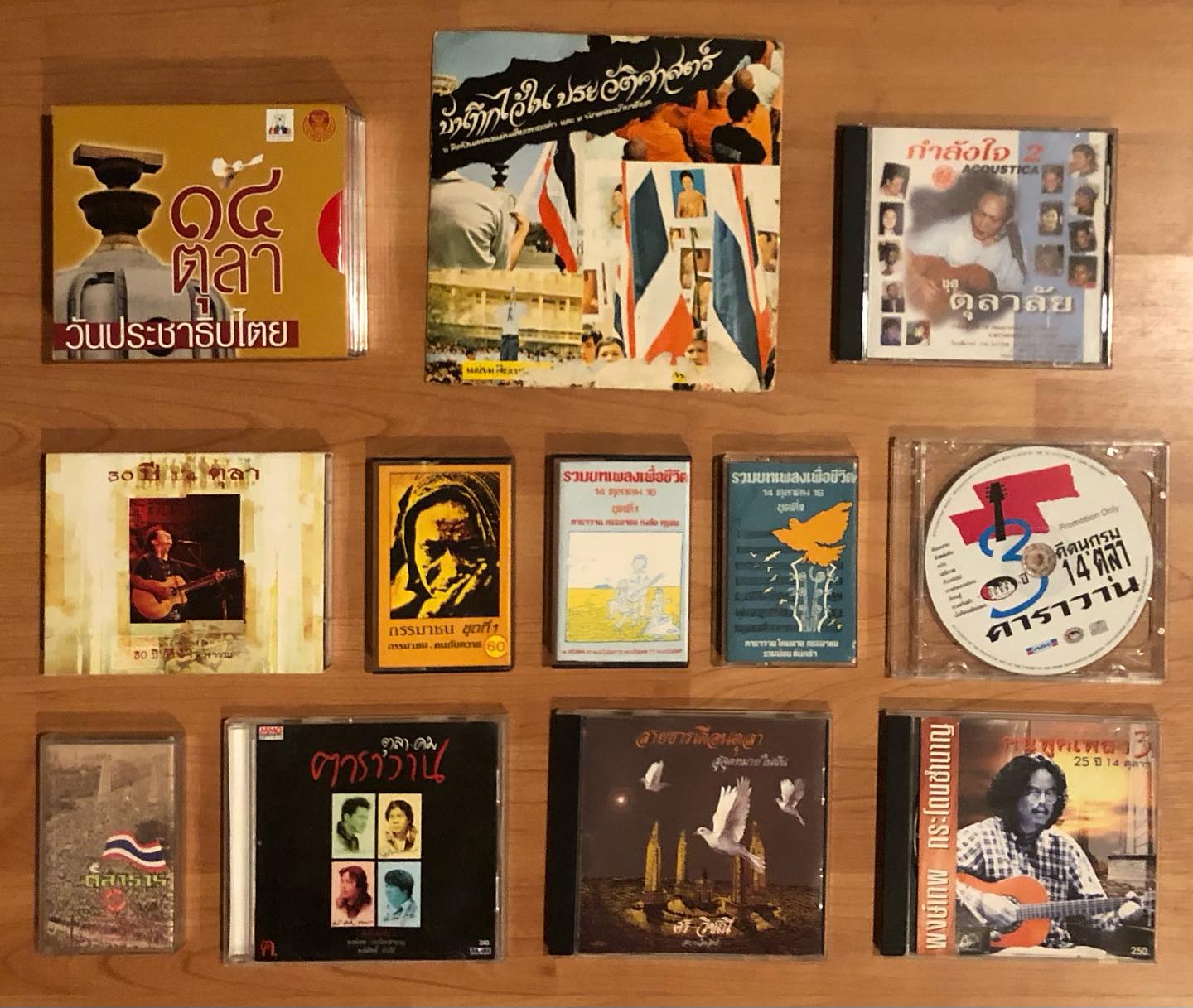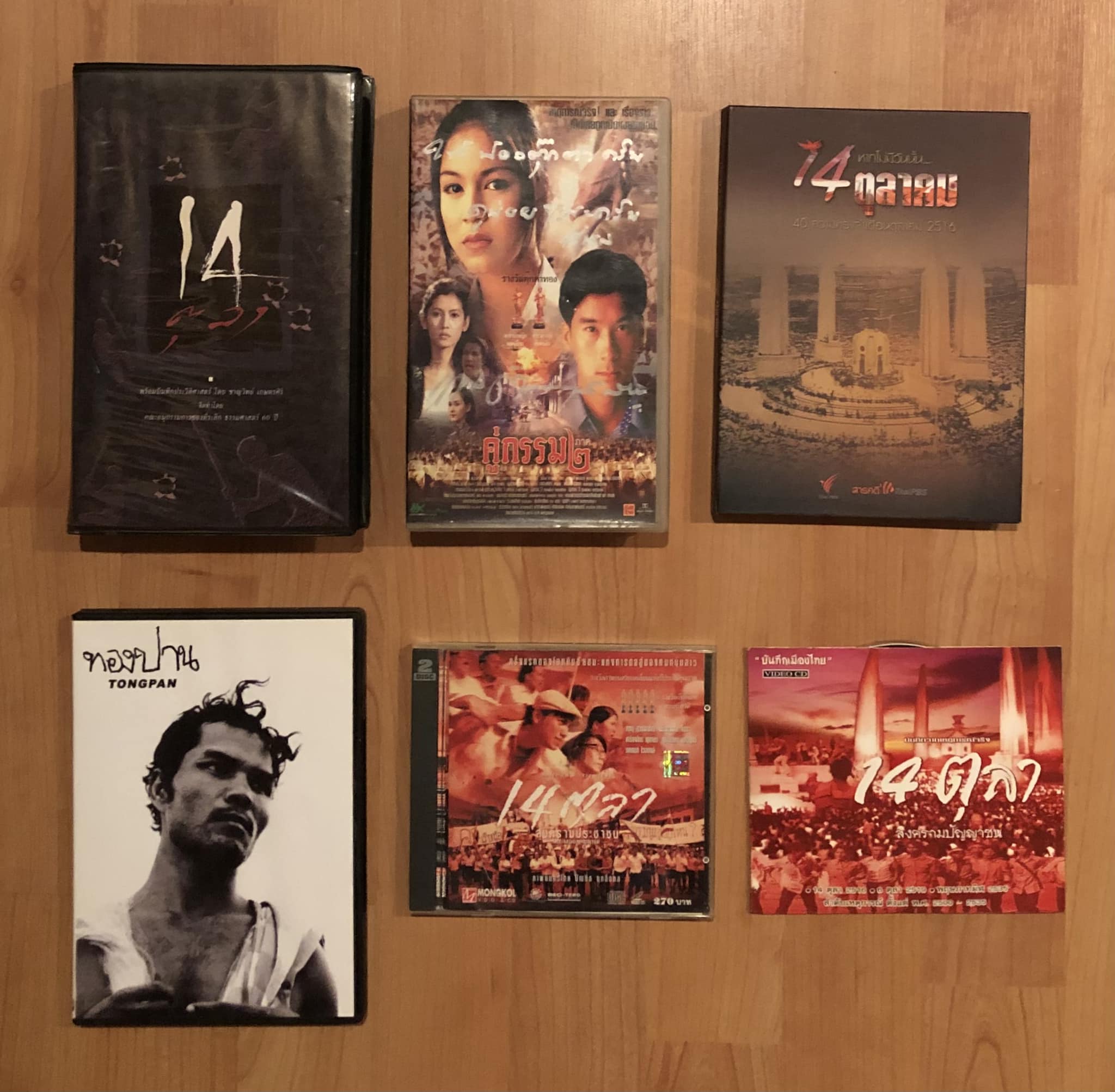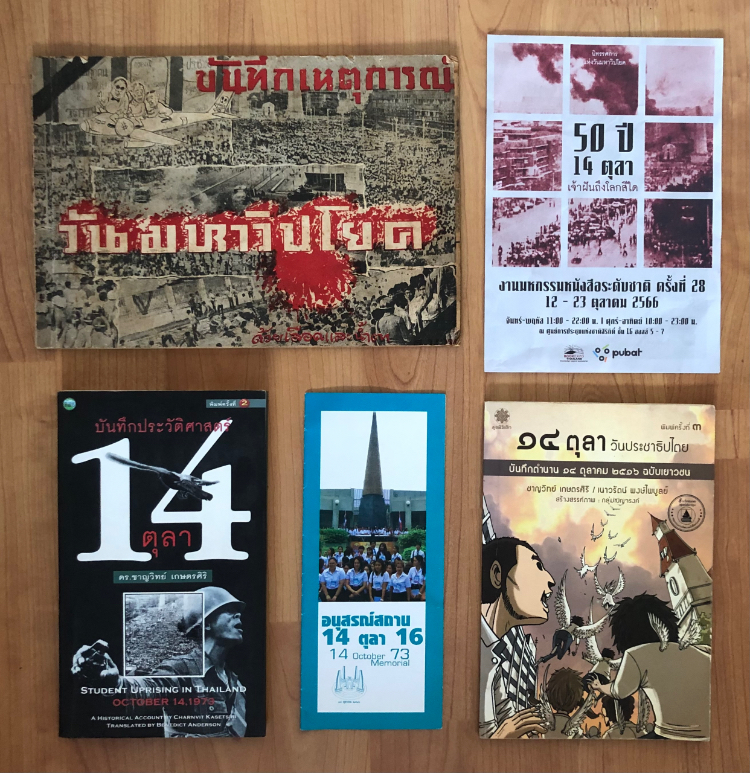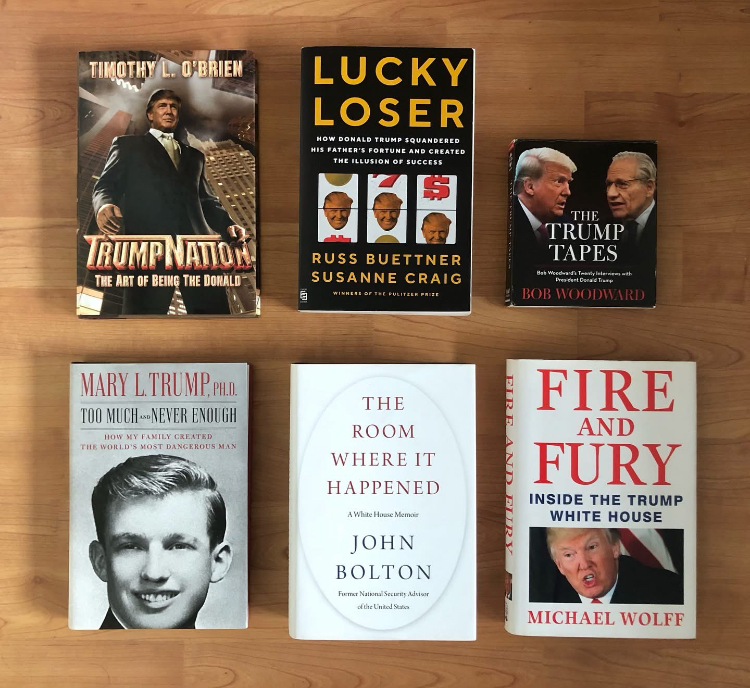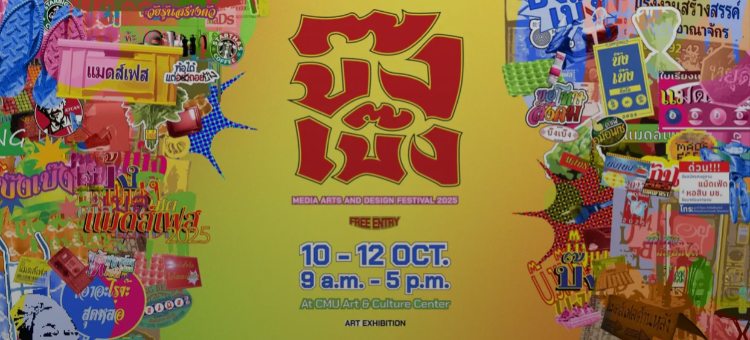
The Media Arts and Design Festival 2025 (บึงเบ๊ง) opened at Chiang Mai University Art Center on 10th October. An impressive multimedia exhibition, the MADs degree show runs until today.
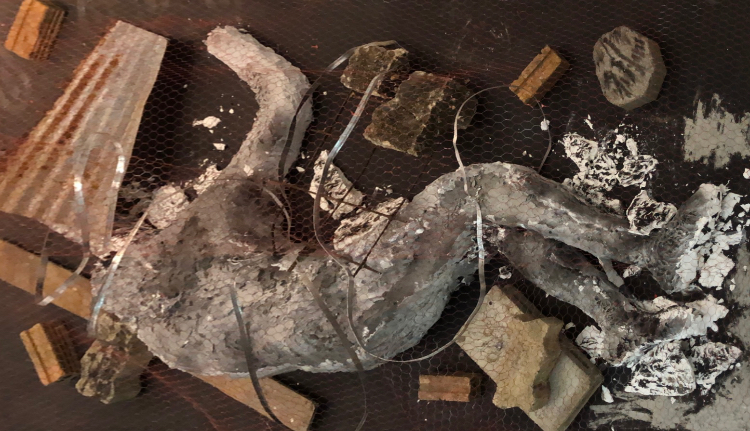
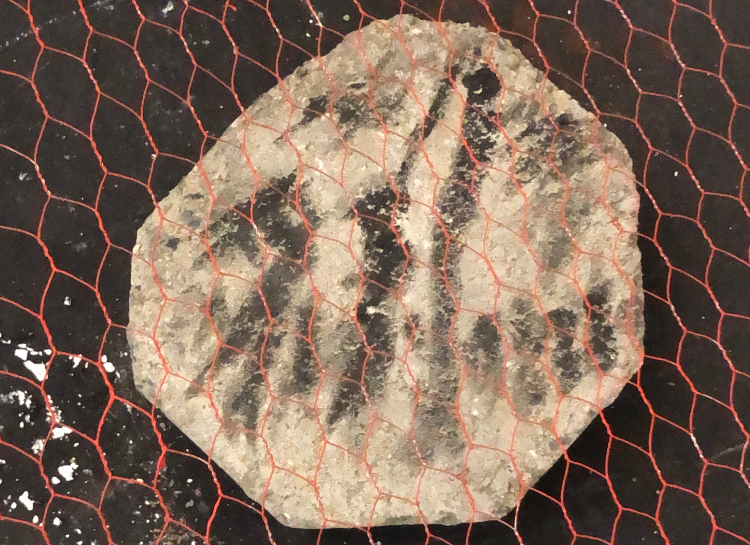
The exhibition includes Eternal Wounds (เงา-อำนาจ-บาดแผล), an installation by Jiraphon Jomthonglang commenting on state violence. The installation features a drawing on a rock inspired by the famous Neal Ulevich photograph of the 1976 Thammasat University massacre. The description on the gallery label refers to the work’s English-language title: “Soldiers still stand above the people, their power inherited as a wound without end.”
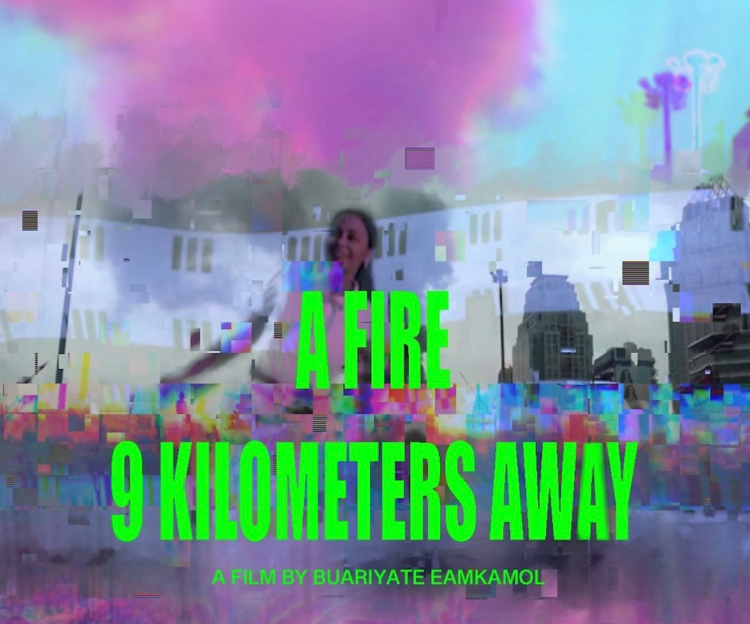
Buariyate Eamkamol’s short film A Fire 9 Kilometers Away (previously shown at Wildtype 2025) is also part of the exhibition. The film is a blend of documentary and fiction, and features a poem dedicated to Samaphan Srithep, one of the youngest victims of the crackdown on protesters in Bangkok in 2010. Projected as a diptych, the film makes ironic juxtapositions, showing military snipers on 10th April 2010 alongside footage of revellers firing water pistols during the April Songkran festival.
(Buriyate’s short film Red Is the Orangest Color, which will be released later this year, documents a commemoration of the fifteenth anniversary of the events of 2010. The film’s title refers to many previous red-shirt Pheu Thai supporters having shifted their allegiances to the progressive ‘orange movement’ represented by the People’s Party. This trend is hardly surprising, as Pheu Thai abandoned the pro-democracy bloc after the last election, and broke their repeated commitments not to join forces with United Thai Nation and Palang Pracharath.)
(Buriyate’s short film Red Is the Orangest Color, which will be released later this year, documents a commemoration of the fifteenth anniversary of the events of 2010. The film’s title refers to many previous red-shirt Pheu Thai supporters having shifted their allegiances to the progressive ‘orange movement’ represented by the People’s Party. This trend is hardly surprising, as Pheu Thai abandoned the pro-democracy bloc after the last election, and broke their repeated commitments not to join forces with United Thai Nation and Palang Pracharath.)


